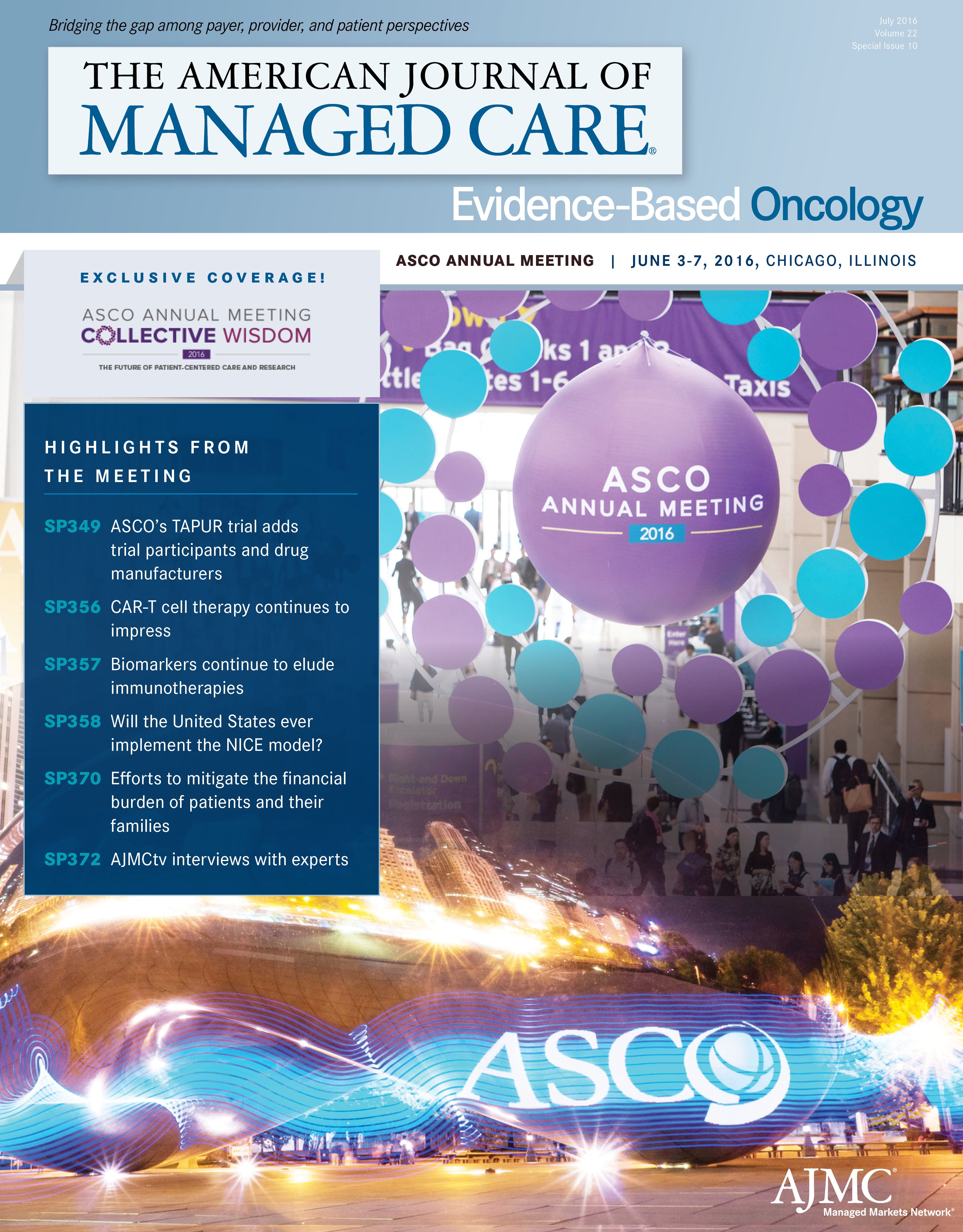- Center on Health Equity & Access
- Clinical
- Health Care Cost
- Health Care Delivery
- Insurance
- Policy
- Technology
- Value-Based Care
Nivolumab Safe in Glioblastoma
At the annual meeting of the American Society of Clinical Oncology, held June 3-7, 2016, phase 1 data from the CheckMate 143 trial was presented during a poster session.
Glioblastoma is the most common primary brain tumor in adults, with a median survival of 15 to 18 months and a 5-year survival rate of less than 5%. Most patients experience recurrence post surgery, and treating the recurrent tumor has not had much impact on survival outcomes so far.
At the annual meeting of the American Society of Clinical Oncology, held June 3-7, 2016, in Chicago, phase 1 data from the CheckMate 143 trial was presented during a poster session. The trial was designed to evaluate the safety and tolerability of nivolumab, alone or in combination with ipilimumab, in patients with recurrent/progressive glioblastoma (phase 1); the phase 3 study is designed to evaluate the efficacy of nivolumab monotherapy compared with bevacizumab in the same population of patients.
Eligible patients had a first recurrence of glioblastoma after radiation and temozolomide. Exclusion criteria included more than 1 recurrence of glioblastoma and prior treatment with bevacizumab or other antiangiogenic treatment.
In cohort 1, 20 patients were randomized 1:1 to receive nivolumab 3 mg/kg (N3) every 2 weeks or nivolumab 1 mg/kg (N1) with ipilimumab 3 mg/kg (I3) every 3 weeks for 4 doses, followed by N3 every 2 weeks. Patients in cohort 1b (n = 20) received N3 with ipilimumab 1 mg/kg (I1) every 3 weeks for 4 doses followed by N3 every 2 weeks. Treatment continued until disease progression or unacceptable toxicity.
The study found no grade 5 treatment-related adverse events (TRAEs). Nivolumab alone did not cause any grade 3 to 4 TRAEs. Discontinuation due to adverse events (AEs) was seen in 1 patient in the N3 arm, 5 patients in the N1 + I3 arm, and 2 patients in the N3 + I1 arm. These AEs included diabetic ketoacidosis, hypocalcemia, hypomagnesemia, hyperthyroidism, colitis, diarrhea, cholecystitis, sepsis, muscular weakness, malignant neoplasm progression, being in a confused state, acute kidney injury, hypotension, and increased alanine aminotransferase, aspartate aminotransferase, amylase, and lipase.
TRAEs with potential immunologic etiology were observed in the following study arms:
- Nivolumab monotherapy arm (5 patients)
- N1 + I3 (10 patients; 6 were grade 3-4)
- N3 + I1 (14 patients; 3 were grade 3-4)
In cohort 1, the study observed:
- An objective response rate in 1 patient (N3)
- A partial response in 1 patient (N3)
- Stable disease in 5 (N3) and 4 (N1 + I3) patients
- Progressive disease in 3 (N3) and 6 (N1 + I3) patients
In cohort 2, the study identified 10 patients with stable disease and 9 with progressive disease.
EBO
Based on their findings, the authors concluded that both nivolumab and ipilimumab can be safely administered to patients with recurrent glioblastoma and that the AE profile was consistent with that observed in other tumor types.
Reference
- Reardon DA, Sampson JH, Sahebjam S, et al. Safety and activity of nivolumab (nivo) monotherapy and nivo in combination with ipilimumab (ipi) in recurrent glioblastoma (GBM): updated results from checkmate-143. J Clin Oncol. 2016;34(suppl; abstract 2014).

Telehealth Intervention by Pharmacists Collaboratively Enhances Hypertension Management and Outcomes
January 7th 2026Patient interaction and enhanced support with clinical pharmacists significantly improved pass rates for a measure of controlling blood pressure compared with usual care.
Read More
